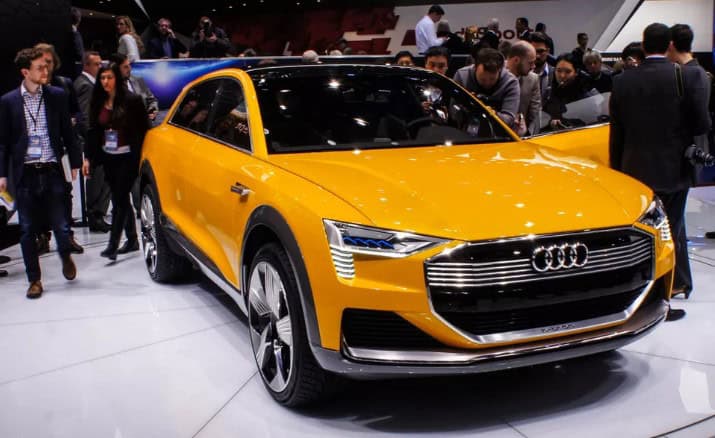
In an interview with journalists at the 2019 Geneva Motor Show, Chairman of Audi Board of Management, Bram Schot, announced that the automaker would be increasing its investment in fuel cell technology.
The automaker is currently in the middle of a large push towards battery-electric technology. Every Audi car showcased at the show this year features a battery, be it a plug-in hybrid or a full-on battery electric vehicle. This latest development indicates that the German automaker hasn’t forgotten hydrogen as a fuel source for electrification.
After giving a hat tip to the success and advancements that Korean and Japanese automakers — specifically, Hyundai and Toyota — have had with hydrogen in the Asian markets, Schot stated that “on the European side we should really intensify development of fuel cell. I decided it last week and now we are going to put more priority into fuel cells.” Schot went on to explain that scarcity of raw materials for batteries and increased supply will eventually push any automaker serious about electrification toward hydrogen as a fuel source stating “at the end of the day, batteries are not sustainable enough — it is sustainable, but if you want to go all the way, you need fuel cells.”
“We decided last week to put more money in, more capacity of people in and more confidence in we really want to speed that up,” said Schot, who couldn’t offer specifics about how much of a resource or capital investment that Audi has decided to make in hydrogen.
Schot went on to state that Audi plans to have a running fuel cell prototype vehicle on the road sometime later this year and that the automaker would follow that up with a limited-run fuel cell vehicle pilot program reaching production by 2021. A timeline for larger scale production would be harder to nail down this early in the game, but Schot was willing to ballpark the “second half of the 2020s.”
Audi USA Director of Communications, Mark Dahncke, also added that behind the scenes, “Audi has continued its investment in fuel cells all along to keep the tech up to date; last week’s decision is a step up in that investment.” This should be no surprise to those who remember Audi’s H-tron concept from a few years back.
Audi representatives also stressed that this increased investment in hydrogen is not an abandonment or replacement of battery electrics. The technologies can live side-by-side for the foreseeable future; no surprise, considering BEVs and FCEVs share so many components. Audi’s commitment to 12 all-electric drive models and roughly a third of its sales being electrified models by 2025 still stands.
